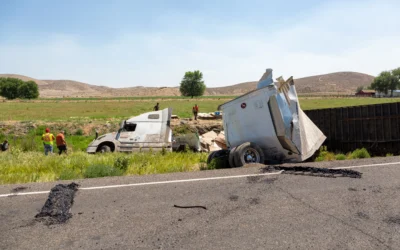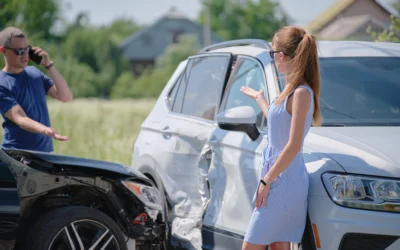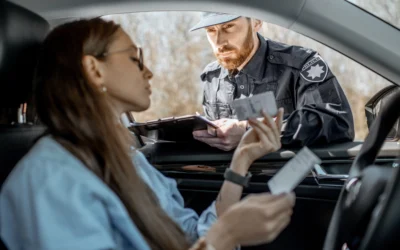The unexpected loss of a loved one leaves families devastated, struggling with grief while simultaneously facing mounting financial pressures. When that loss occurs because of someone else’s negligence or wrongful acts, Nevada law provides a pathway to justice through wrongful death claims. At Joey Gilbert Law, we walk alongside grieving families during their darkest moments, helping them secure the compensation they deserve while honoring their loved one’s memory.
What Is a Wrongful Death Claim in Nevada?
Under Nevada law, a wrongful death occurs when someone dies due to another party’s wrongful act or negligence. Nevada Revised Statutes (NRS) 41.085 establishes the legal framework for these claims, allowing certain family members to seek compensation when they lose a loved one due to someone else’s careless, reckless, or intentional actions.
Think of wrongful death claims as personal injury cases where the injured person can no longer bring their own lawsuit. Instead, specific family members or representatives step into that role.
Common situations that may lead to wrongful death claims in Nevada include:
- Motor vehicle accidents
- Workplace incidents
- Medical malpractice
- Defective products
- Premises liability accidents
- Intentional acts of violence
- Commercial truck accidents
- Motorcycle crashes
- Pedestrian fatalities
Who Can File a Wrongful Death Claim in Nevada?
Nevada law is specific about who has the right to pursue a wrongful death claim. According to NRS 41.085, two separate legal actions may arise from a wrongful death:
- The Estate’s Claim: The personal representative of the deceased person’s estate may file a claim on behalf of the estate.
- Heirs’ Claims: The deceased person’s heirs may file claims in their individual capacities.
Nevada defines “heirs” primarily as:
- Surviving spouse
- Surviving children
- Parents (if there is no surviving spouse or children)
- Siblings (in some circumstances)
- Depending on relationships, potentially other dependents
Each eligible party can recover damages specific to their own losses. This differs from many other states, where only one claim is filed on behalf of all beneficiaries.
Nevada’s Statute of Limitations: Time Matters
Grieving families must be aware of time constraints when considering legal action. In Nevada, the statute of limitations for wrongful death claims is two years from the date of death (NRS 11.190). This means you must file your lawsuit within that timeframe, or you may permanently lose your right to compensation.
While two years might seem like plenty of time, building a strong wrongful death case requires thorough investigation and preparation. Evidence can disappear, witnesses’ memories fade, and crucial documentation becomes harder to obtain as time passes.
There are limited exceptions to this timeframe in cases involving:
- Government entities (where notice requirements may be much shorter)
- Claims involving minors
- Situations where the cause of death wasn’t immediately known
Given these complexities, consulting with a Nevada wrongful death attorney promptly after losing a loved one is crucial to protecting your rights.
Damages Available in Nevada Wrongful Death Cases
Nevada law recognizes several types of damages in wrongful death cases, acknowledging both economic and emotional losses:
For Heirs
Heirs may recover compensation for:
- Grief and sorrow
- Loss of companionship, comfort, and consortium
- Loss of probable support, including financial contributions
- Pain, suffering, or disfigurement of the deceased before death
- Loss of household services the deceased would have provided
For the Estate
The personal representative may recover:
- Medical expenses related to the final injury or illness
- Funeral and burial expenses
- Lost income and benefits between injury and death
- Property damage
- Punitive damages (in cases involving malicious, oppressive, or fraudulent conduct)
Unlike some states, Nevada does not impose caps on most wrongful death damages, though medical malpractice cases may have certain limitations under NRS 41A.035.
The Wrongful Death Claim Process in Nevada
Navigating a wrongful death claim involves several steps:
Initial Investigation
The process begins with a thorough investigation to establish liability. This typically involves:
- Gathering police reports, medical records, and death certificates
- Interviewing witnesses
- Consulting with accident reconstruction or medical experts
- Reviewing financial records to calculate damages
- Identifying all potentially responsible parties
Filing the Complaint
Once the investigation establishes a viable claim, your attorney will file a formal complaint in Nevada civil court. This document outlines the legal basis for your claim, identifies the responsible parties, and specifies the damages sought.
Discovery Phase
Both sides exchange information through a process called discovery, which may include:
- Written interrogatories (questions)
- Requests for documents
- Depositions (formal interviews under oath)
- Expert witness reports
Settlement Negotiations
Most wrongful death cases resolve through settlement negotiations rather than trial. Insurance companies representing the responsible parties may offer compensation to avoid litigation. Your attorney will negotiate on your behalf, leveraging evidence and legal precedent to maximize your recovery.
Trial (If Necessary)
If a fair settlement can’t be reached, your case proceeds to trial, where both sides present evidence and arguments to a judge or jury. The court then determines liability and awards damages accordingly.
Proving Liability in a Nevada Wrongful Death Case
To succeed in a wrongful death claim, you must prove four key elements:
- Duty of care: The defendant owed your loved one a duty of care (such as driving safely or providing proper medical treatment)
- Breach of duty: The defendant breached that duty through negligence or wrongful acts
- Causation: This breach directly caused your loved one’s death
- Damages: You suffered actual damages as a result
Nevada follows a modified comparative negligence standard (NRS 41.141). This means compensation may be reduced by the percentage of fault attributed to the deceased person. If that percentage exceeds 50%, recovery might be barred entirely.
Survival Actions: A Related but Different Claim
It’s important to distinguish between wrongful death claims and survival actions in Nevada. While wrongful death claims compensate family members for their own losses, survival actions (governed by NRS 41.100) allow the estate to pursue claims the deceased could have brought had they survived.
A survival action seeks compensation for the deceased’s:
- Pain and suffering experienced before death
- Medical expenses incurred before death
- Lost wages between injury and death
- Punitive damages
These claims can sometimes be pursued alongside wrongful death claims, providing fuller compensation for the total harm caused.
Handling Wrongful Death Cases Involving Government Entities
When a government agency or employee causes a wrongful death, special rules apply under the Nevada Tort Claims Act (NRS Chapter 41). These cases involve:
- Shorter notice requirements (typically within 6 months)
- Different procedural requirements
- Potential damage caps
Claims against government entities require strict adherence to procedural requirements, making legal representation particularly important.
Key Takeaways About Nevada Wrongful Death Claims
- Wrongful death claims must be filed within two years of the death in most cases
- Both the estate and individual heirs may bring separate claims
- Nevada allows recovery for both economic and emotional damages
- The modified comparative negligence rule may reduce compensation if the deceased was partially at fault
- Cases involving government entities have special requirements and shorter deadlines
- Working with an attorney familiar with Nevada wrongful death law improves your chances of fair compensation
Frequently Asked Questions About Wrongful Death Claims in Nevada
How much is a wrongful death claim worth in Nevada?
There’s no standard value for wrongful death claims, as each case depends on unique factors including:
- The deceased’s age, health, and life expectancy
- Their earning capacity and financial contributions
- The circumstances of the death
- The relationship between the deceased and their heirs
- Whether punitive damages apply
Can I still recover if my loved one was partially at fault?
Yes, but your recovery may be reduced. Under Nevada’s modified comparative negligence law (NRS 41.141), damages are reduced by the percentage of fault attributed to the deceased. If their fault exceeds 50%, recovery may be barred entirely.
What’s the difference between a wrongful death claim and a criminal case?
A wrongful death claim is a civil action seeking financial compensation, while criminal cases seek punishment through incarceration or fines. The same incident may lead to both types of cases, but they proceed independently with different standards of proof. Civil claims require a “preponderance of evidence” (more likely than not), while criminal cases require proof “beyond a reasonable doubt.”
How long do wrongful death cases take in Nevada?
The timeline varies greatly depending on:
- Case complexity
- The number of parties involved
- Whether liability is contested
- Court schedules in your jurisdiction
Simple cases might settle within months, while complex litigation could take several years to resolve.
Do wrongful death settlements get taxed?
Generally, compensatory damages for wrongful death are not subject to federal income tax. However, certain components like punitive damages or interest may be taxable. Consult with a tax professional regarding your specific settlement.
Can I handle a wrongful death claim without an attorney?
While technically possible, wrongful death claims involve complex legal and procedural requirements. Insurance companies and corporate defendants typically have teams of attorneys protecting their interests. Having knowledgeable legal representation helps level the playing field and typically results in significantly higher compensation.
When You’re Ready to Take Action
Losing someone you love is devastating. When that loss results from someone else’s negligence, you deserve answers and compensation. At Joey Gilbert Law, we handle the legal complexities while you focus on healing.
Our team approaches each wrongful death case with compassion, dedication, and a commitment to securing justice for Nevada families. We’ll thoroughly investigate the circumstances of your loved one’s death, identify all responsible parties, and fight for the full compensation you deserve.
If you’ve lost a family member due to someone else’s negligence or wrongful acts, contact us for a free consultation. We’ll review your case, answer your questions, and help you understand your options moving forward.
No legal action can bring back your loved one, but holding responsible parties accountable can provide financial security and a measure of closure during this difficult time.Dealing with a wrongful death in Nevada? Fight back and get the justice your family deserves. Discover how to secure compensation and protect your rights now.




